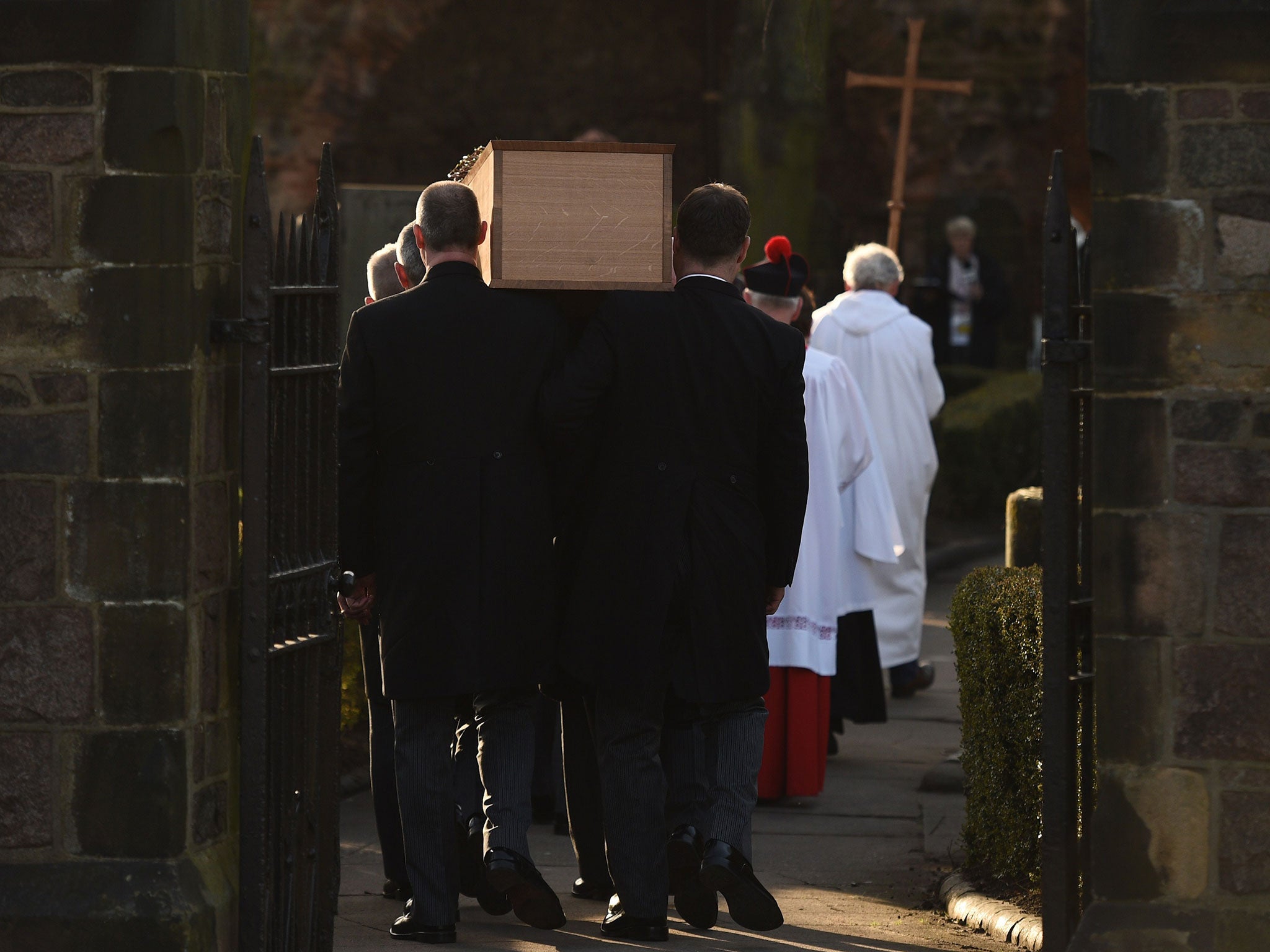Talking about death is such a taboo that millions leave issues unresolved when they die, says study
More than two-thirds of the population believe people in the UK feel too uncomfortable about death and dying to plan properly

Talking about dying remains such a taboo that millions of people leave their affairs in a mess when they die, a study shows.
More than two-thirds of the population believe people in the UK feel too uncomfortable about death and dying to plan properly.
While a third of people think about death and dying at least once a week the vast majority fail to set down their wishes for end-of-life care, make wills, register for organ donation or organise life insurance, a poll reveals.
It can be even harder to broach the subject of someone else’s death with just 18 per cent of adults daring to ask a family member about their “end-of-life” preferences.
The ComRes survey shows there is more willingness for people to talk of their own demise than a decade ago but that there remains deep unease and discomfort at addressing the issue, said the Dying Matters Coalition which commissioned the research.
Claire Henry, Chief Executive of the Coalition said: “We need to change the nation’s approach to dying, so that all of us become better at making our end of life wishes known and asking our loved ones about theirs.
“Talking about dying and planning ahead may not be easy, but it can help us to make the most of life and spare our loved ones from making difficult decisions on our behalf or dealing with the fallout if we haven’t got our affairs in order.”
Professor Mayur Lakhani, Chairman of the organisation which campaigns for greater openness about death, added: “There are encouraging signs that talking about dying is becoming less of a taboo than previously, but too many people are continuing to avoid facing up to their own mortality and are not putting plans in place.
“The public and health professionals alike need to become more comfortable talking about dying and discussion options for end of life care. We know that many people have strong views about their end of life wishes, but unless they talk about them and plan ahead they are unlikely to be met.”
In its poll of more than 2,000 people ComRes found that just 7 per cent of people have considered their likely demise deeply enough to have written down their wishes about care in the future when they are unable to make decisions for themselves.
Only 27 per cent said they have talked to anyone about their funeral wishes while 32 per cent have registered as organ donors, slightly higher than the 31 per cent who have taken out life assurance to provide for their families if they should die unexpectedly.
When asked how to ensure a “good death”, 33 per cent said being pain-free was the most important factor. Being with family and friends was named by 17 per cent and 13 per cent put dignity highest. A large majority – 79 per cent – agreed that quality of life was more important than longevity.
The most popular age to die at was identified as being from 81 to 90 years, an age bracket chosen by 27 per cent, while just 8 per cent wanted to get past their 100th birthday.
Join our commenting forum
Join thought-provoking conversations, follow other Independent readers and see their replies
Comments